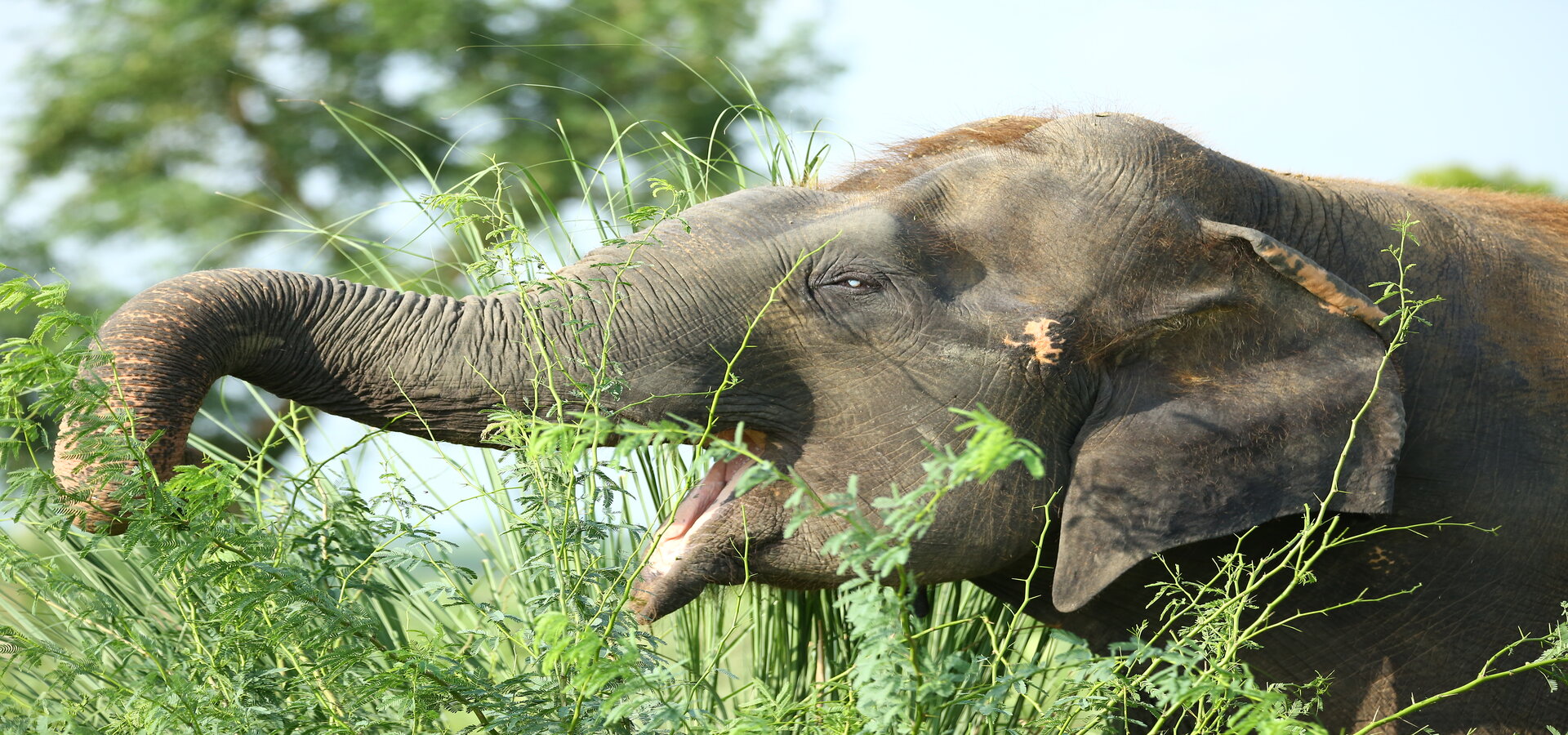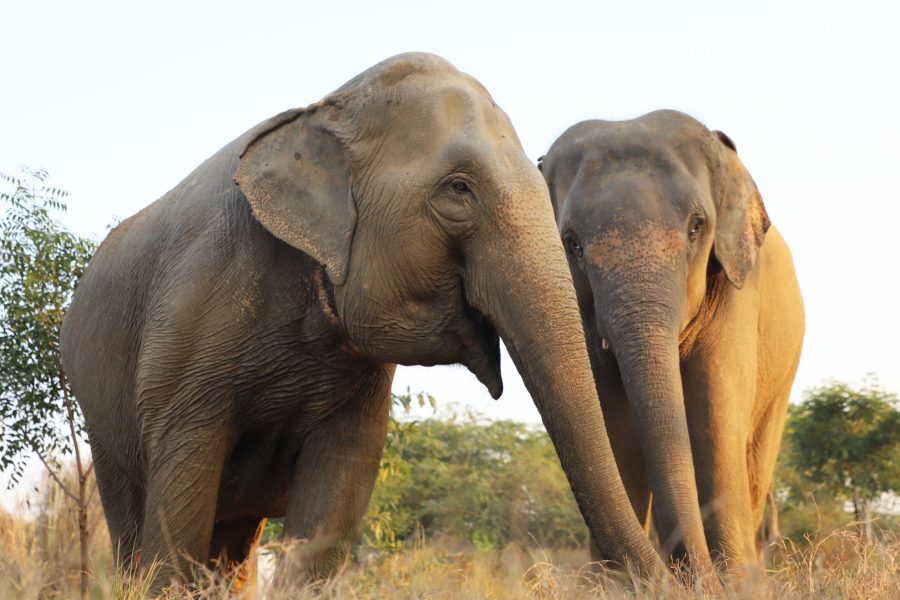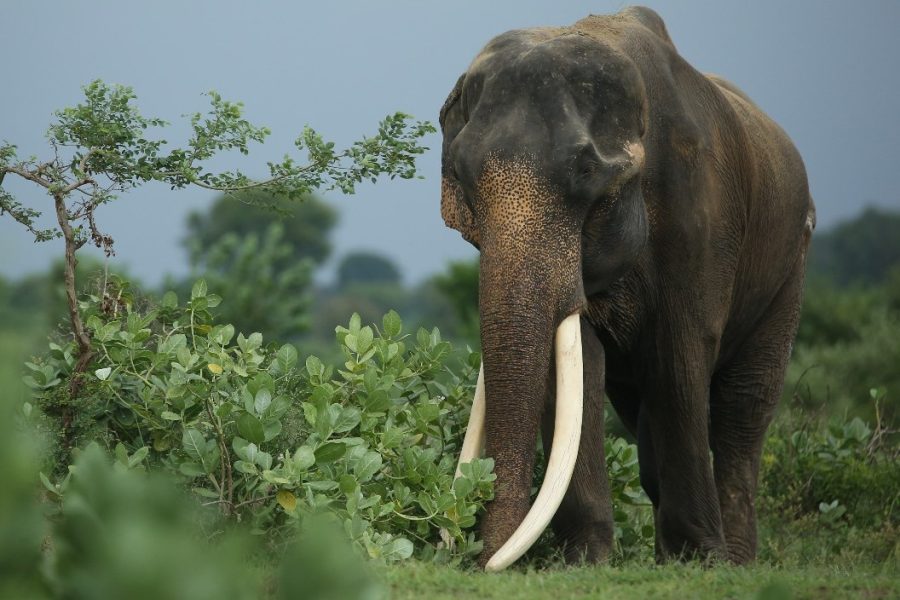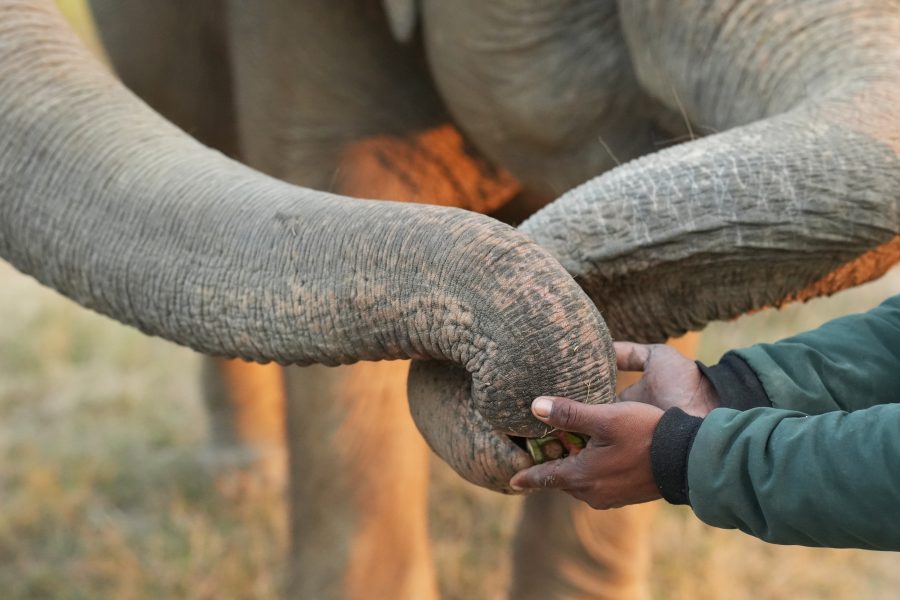With Arya’s arrival at the Wildlife SOS Elephant Hospital, there are now a total of 6 rescued blind elephants under our care. These elephants have endured brutality and pain, which caused irreversible damage to their body and mind.
Severe malnutrition coupled with lack of timely medical treatment for eye injuries that were caused by repeated blows to the head or prods from a sharp ankush (bullhook), gradually led to cataract and blindness.
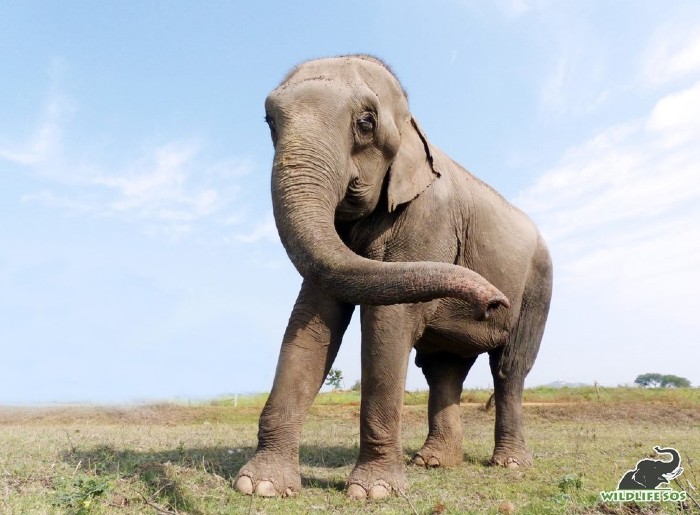
When we learnt about Lakhi’s story, who passed away in 2018, we were absolutely shocked – Lakhi was a begging elephant who had been intentionally blinded by her owner who believed that a blind elephant would gain more sympathy and bring more money.
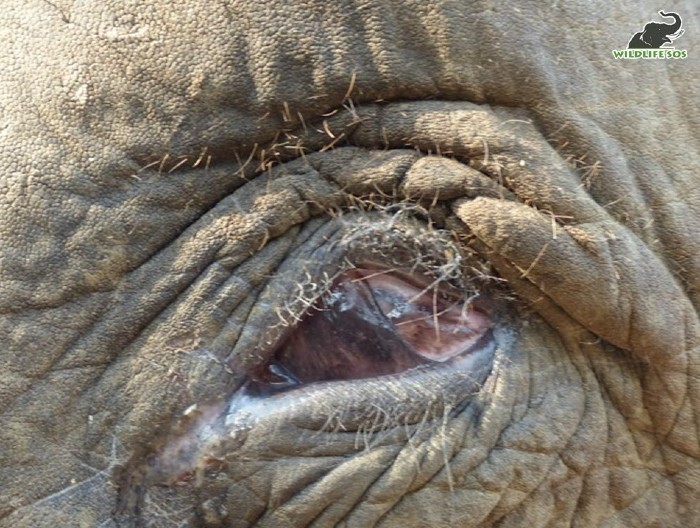
Caring for elephants who are visually impaired is a challenging experience, particularly when they have suffered immensely at the hands of their former owners and hold no positive memories of their interactions with humans. Understandably, trust is slow to build but rest assured, we are with them at every step of the way on their road to recovery.
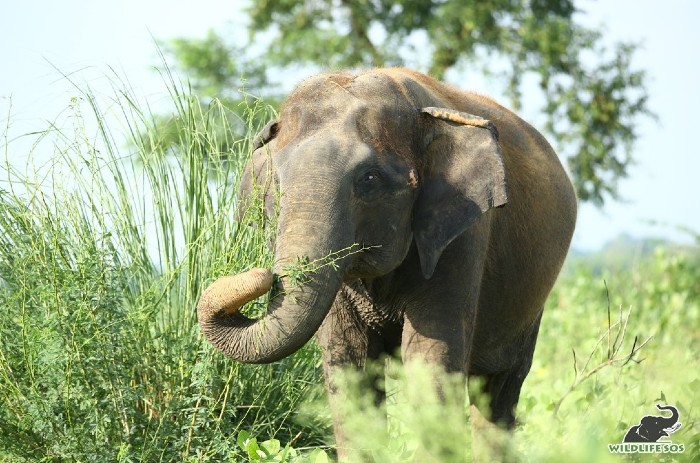
Visually-impaired elephants rely completely on their sense of smell and actively use their trunk to navigate through their surroundings. We also ensure that these elephants remain under the care of our staff who have been with them since the very first day, as they have grown accustomed to them. Like in the case of Babulal and Suzy, the oldest female under our care who is completely blind and was rescued from a circus in 2015.
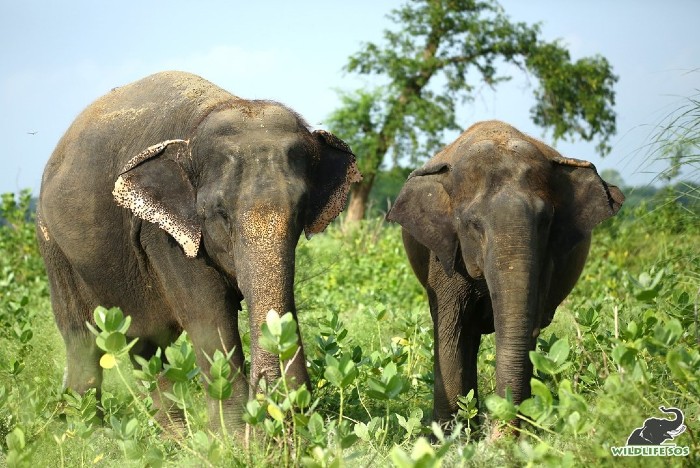
Babulal has been taking care of Suzy since the very beginning and both share a heartwarming bond, he comforts her during treatments and walks right in front of her, clearing the path on their long walks together.
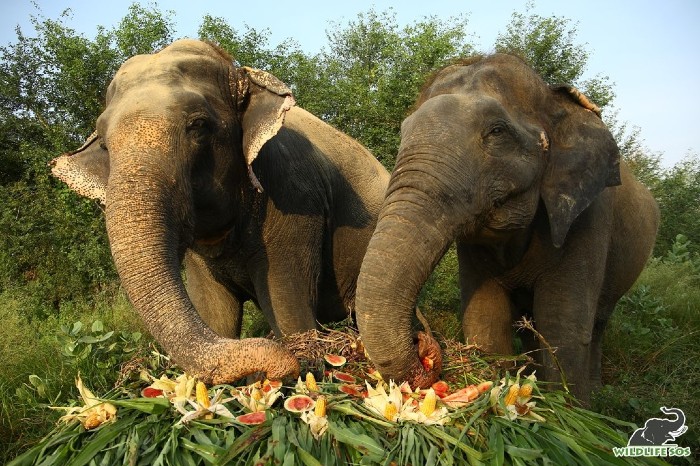
Another very important aspect about caring for blind elephants is ensuring that the layout and arrangement of their enclosure is never changed. It has taken the elephants a significant amount of time to get used to understanding where the pool is, where the water trough is placed and where they have to head for treatment, hence, any alteration to the existing pattern is bound to stress them out.
In our years of caring for blind elephants, we’ve realised that companionship plays a very crucial role in their rehabilitation which is why we focus on pairing blind elephants together or with an elephant that has better vision. Hence, dear old Suzy has the company of Asha who always leads the way and is quick to rumble out to Suzy if she is left far too behind!
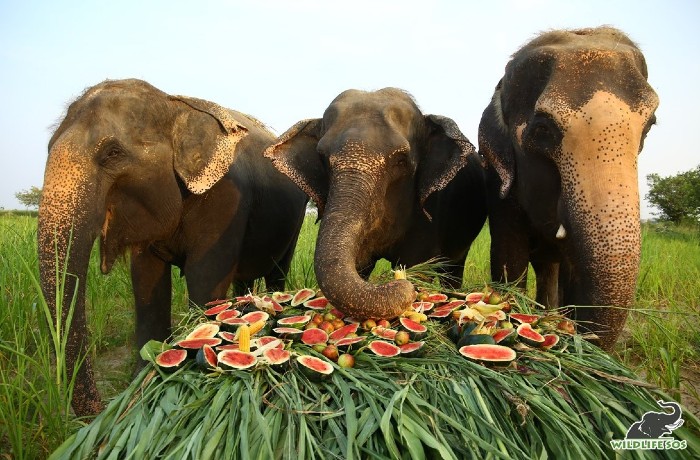
Similarly, Karma, Kalpana and Holly, residents of the Wildlife SOS Field of Dreams are inseparable. While Holly and Karma are completely blind, Kalpana suffers from loss of vision in her right eye, having partial vision in the left. She has taken on the role of herd leader and guides her companions during their walks. Even during veterinary treatments, Holly is guided by Kalpana who is sure to rumble out to her each time she lags behind!
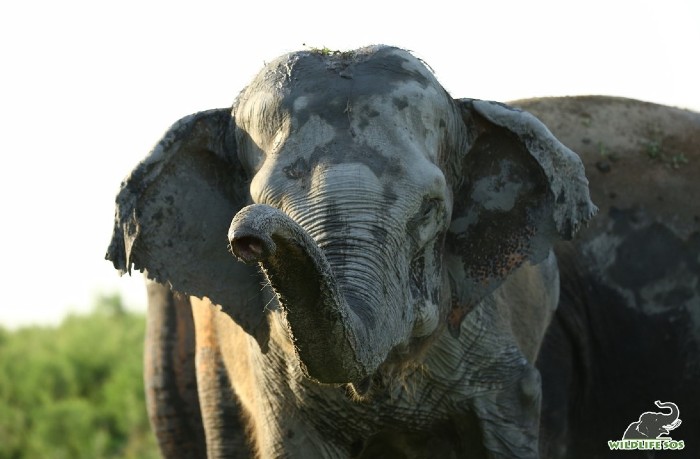
We ensure that the enclosures, where blind elephants are, have no sharp edges that they may hurt themselves against, and soft cushioning is added to the edgings. Bhola suffers from complete loss of sight which sometimes causes him to get moody and distressed, but his caregiver is always close by and knows how to calm him down with words of reassurance and a handful of his favourite treats. As Bhola experiences musth, which is a period of heightened levels of testosterone in male elephants, his caregiver Asif, makes sure that his pool always has freshwater for him to enjoy a relaxing dip! During the veterinary treatments, Asif ensures that he remains comfortable by feeding him dates and jaggery.
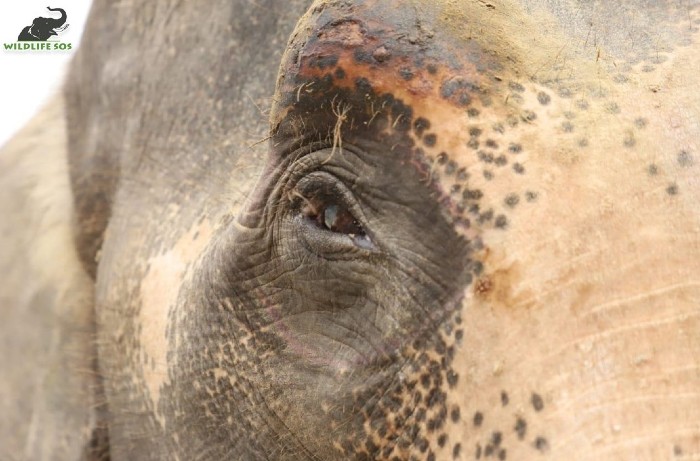
The elephant care staff dedicated to the care of blind elephants works very hard in ensuring that the enclosures and the surroundings are always kept clean with no pebbles, stones or metal scraps lying around that may hurt their feet. Surendra, who takes care of Karma, Kalpana and Holly, always keeps a close eye on the ground when they are out on walks to make sure the path is clear of stones that may hurt them. The enrichment team also has to be very careful in designing their enrichments, making sure that no sharp edges or metal enrichments are used for them. This is why pipe feeders and hanging hay net enrichments serve the best purpose as they allow the complete exercise of the trunk and neck muscles for the elephants while eliminating the risk of them hurting themselves against a girder!
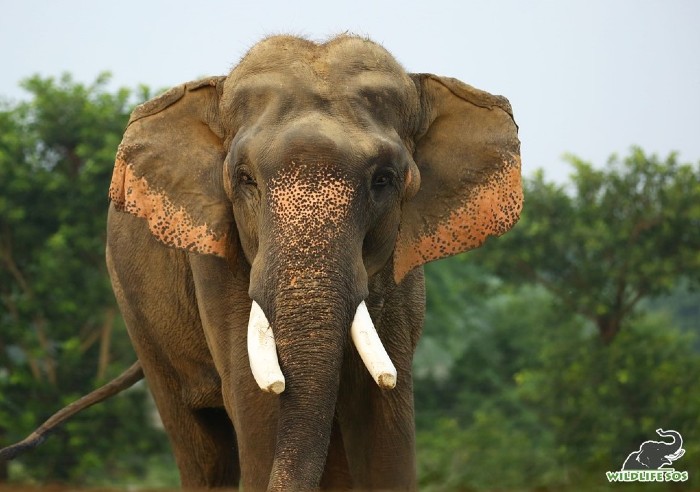
Rescued elephants, Kalpana, Phoolkali and Sanjay also suffer from partial blindness caused due to untreated cataract or the blow of a bullhook permanently damaging the optic nerve, had lived most part of their lives walking endlessly on the streets with impaired vision. Today, with their keepers constantly looking out for them, they embark on a brave, healing journey with us at Wildlife SOS!
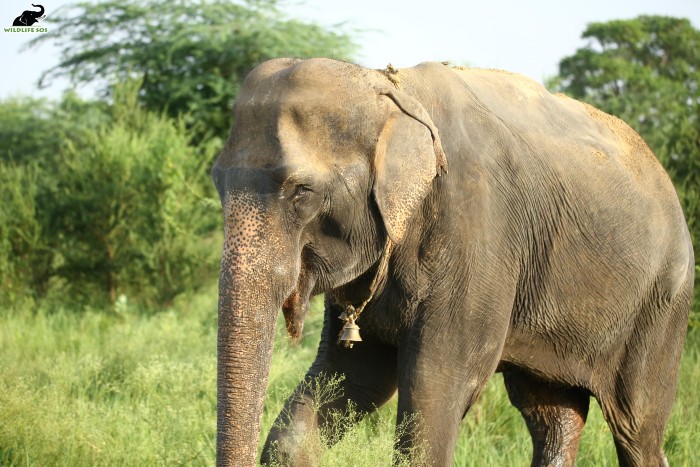
Arya who has recently started her journey with us is taking her time to get used to the new surroundings, and can be spotted carefully examining the soft mud under her feet. You can play an important role in contributing to the lifetime care and treatment of blind elephants at Wildlife SOS by considering becoming a sponsor.
Wildlife SOS supports responsible and cruelty-free tourism for our great nation and aims to educate tourists about India’s vast and diverse wildlife in partnership with the Responsible Tourism Society of India.

